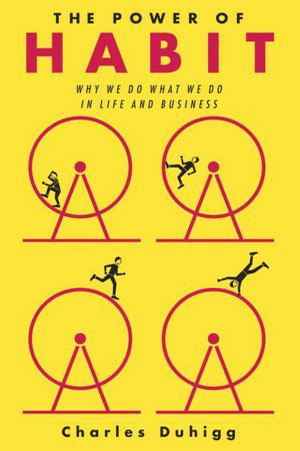[dcwsb inline=”true”]
Humans are incredibly adaptable, brilliant learners. This means You :)
Advances in neuroscience have discovered that we are not victims and have the ability to constantly change how our brains work and can actually re-wire ourselves. While this gives us an amazing survival advantage, it also burdens us with unintended consequences: We can be reprogrammed to take pleasure from and crave almost anything (Good or Bad!)
This is no secret to Mainstream Marketeers! We are literally marketed to death sometimes with processed food, alcohol and even consumer purchasing. Advertisers sow discontent, a kind of an itch that can be scratched only by designer handbags, sweet foods laced with chocolate, or hot videogames — all of which stimulate our pleasure centers, opening the door for addictions.
It's alcohol or nicotine, its the idea of winning big with gambling, feeling good because of shopping, fantasizing with porn, or even social media and its voyeurism that keep us coming back for more? All these activities stimulate the release of brain chemicals that act on networks of nerves to produce experiences of pleasure.
But that's not the entire story. If it were, we'd all become hooked on whatever put a smile on our faces. So, why do some people develop addictions while others don't? Are there clues that indicate how vulnerable an individual might be to addiction and its consequences? Once established, addictions are tough to overcome, so it makes sense to learn about preventive measures as well as complementary treatments to improve the odds of quitting.
- A young woman walks into a laboratory. Over the past two years, she has transformed almost every aspect of her life. She has quit smoking, run a marathon, and been promoted at work. The patterns inside her brain, neurologists discover, have fundamentally changed.
- Marketers at Procter & Gamble study videos of people making their beds. They are desperately trying to figure out how to sell a new product called Febreze, on track to be one of the biggest flops in company history. Suddenly, one of them detects a nearly imperceptible pattern—and with a slight shift in advertising, Febreze goes on to earn a billion dollars a year.
 In The Power of Habit, award-winning New York Times business reporter Charles Duhigg takes us to the thrilling edge of scientific discoveries that explain why habits exist and how they can be changed. With penetrating intelligence and an ability to distill vast amounts of information into engrossing narratives, Duhigg brings to life a whole new understanding of human nature and its potential for transformation.
In The Power of Habit, award-winning New York Times business reporter Charles Duhigg takes us to the thrilling edge of scientific discoveries that explain why habits exist and how they can be changed. With penetrating intelligence and an ability to distill vast amounts of information into engrossing narratives, Duhigg brings to life a whole new understanding of human nature and its potential for transformation.
At its core, The Power of Habit contains an exhilarating argument: The key to exercising regularly, losing weight, raising exceptional children, becoming more productive, building revolutionary companies and social movements, and achieving success is understanding how habits work.
Habits aren’t destiny. As Charles Duhigg shows, by harnessing this new science, we can transform our businesses, our communities, and our lives.
Humans are incredibly adaptable, brilliant learners. This means You :)
Advances in neuroscience have discovered that we are not victims and have the ability to constantly change how our brains work and can actually re-wire ourselves. While this gives us an amazing survival advantage, it also burdens us with unintended consequences: We can be reprogrammed to take pleasure from and crave almost anything (Good or Bad!)
This is no secret to Mainstream Marketeers! We are literally marketed to death sometimes with processed food, alcohol and even consumer purchasing. Advertisers sow discontent, a kind of an itch that can be scratched only by designer handbags, sweet foods laced with chocolate, or hot videogames — all of which stimulate our pleasure centers, opening the door for addictions.
It's alcohol or nicotine, its the idea of winning big with gambling, feeling good because of shopping, fantasizing with porn, or even social media and its voyeurism that keep us coming back for more? All these activities stimulate the release of brain chemicals that act on networks of nerves to produce experiences of pleasure.
But that's not the entire story. If it were, we'd all become hooked on whatever put a smile on our faces. So, why do some people develop addictions while others don't? Are there clues that indicate how vulnerable an individual might be to addiction and its consequences? Once established, addictions are tough to overcome, so it makes sense to learn about preventive measures as well as complementary treatments to improve the odds of quitting.
- A young woman walks into a laboratory. Over the past two years, she has transformed almost every aspect of her life. She has quit smoking, run a marathon, and been promoted at work. The patterns inside her brain, neurologists discover, have fundamentally changed.
- Marketers at Procter & Gamble study videos of people making their beds. They are desperately trying to figure out how to sell a new product called Febreze, on track to be one of the biggest flops in company history. Suddenly, one of them detects a nearly imperceptible pattern—and with a slight shift in advertising, Febreze goes on to earn a billion dollars a year.

At its core, The Power of Habit contains an exhilarating argument: The key to exercising regularly, losing weight, raising exceptional children, becoming more productive, building revolutionary companies and social movements, and achieving success is understanding how habits work.
Habits aren’t destiny. As Charles Duhigg shows, by harnessing this new science, we can transform our businesses, our communities, and our lives.


